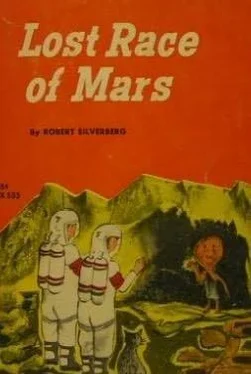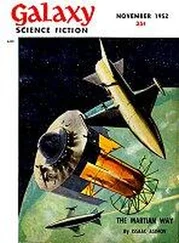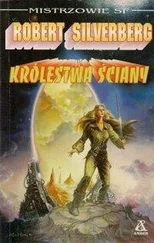“I’m sure the colony authorities will be cooperative, Roy. After all, they must understand that your work will benefit them, too—”
“All they understand is immediate practical results,” Dr. Chambers growled. “Not that I’m blaming them, mind you! They have a world to settle, and they want to get on with the job, not divert valuable equipment to pie-in-the-sky biological research. But if they would only look beyond the ends of their noses and realize that science is important, too, just as important as so-called ‘practical’ things, and that if it weren’t for science they’d all be still down on Earth now instead of up here—” He forced a faint smile. “I don’t want to lose my temper. Maybe things will improve. Let’s finish bringing the equipment up.”
The work of setting up the laboratory occupied the Chambers family so thoroughly during the rest of the week that Jim and Sally hardly had time to think about the indifferent treatment they were receiving. Even the newest colonists in the school, boys and girls who had been on Mars only a month or two, looked down on Jim and Sally as “Earthers.” They never let Jim and Sally forget that when the year was up, back to Earth they would go.
So every afternoon when the dismissal bell rang, Jim and Sally hurried back to help their parents assemble the lab. Dr. Chambers traveled all over the colony, arranging for equipment.
He picked it up piecemeal, a test tube here, a Bunsen burner there. The Earth government had guaranteed to pay his transportation and most of his expenses, but they hadn’t agreed to furnish him with his laboratory equipment once he arrived on Mars. He had to use his skill as a talker to persuade the colony hospital and the research center of the colony university to lend him the tools he needed.
Slowly, the laboratory began to look the way it should. Now it was time to start actual research. Dr. Chambers placed an announcement in the colony’s daily paper offering extra food coupons to anyone who brought him specimens of Martian wildlife. The colony directors had allowed him a small supply of extra coupons for just such a purpose.
The next day, half a dozen colonists showed up at the laboratory with animals they had trapped on the desert. Jim and Sally found the little creatures caged when they came home from school. Three of them were animals about the size of rats. They had thick red fur and their eyes were protected from sandstorms by transparent flaps of skin. Beneath their chins were big pouches that could be used for storing food or water.
The fourth animal was a kind of sand tortoise. It was about as big as the palm of Dr.
Chambers’ hand, and its brownish shell could close up tight as a safe—again, protection against sandstorms. It was closed up when Jim and Sally first saw it, and looked like nothing more than a large stone. But after a few hours it worked up the courage to peep out. It had four leathery flippers and a small, wise-looking little head. The big surprise was the extra eye.
It had two eyes in the usual locations, on either side of its head, and a third place between them to look straight up.
“Reptiles on Earth once had a third eye, hundreds of millions of years ago,” Dr. Chambers said.
“But over the course of the ages that middle eye vanished. This little fellow just hasn’t heard the news that nowadays only two eyes are fashionable.”
“Maybe the middle eye is to let him see birds that might attack from above,” Sally suggested.
Dr. Chambers chuckled. “That’s a very good idea! The only trouble with it is that there aren’t any birds on Mars. And as far as we can tell there never have been. The air is so thin that a bird would need enormous wings to be able to stay aloft, and then he wouldn’t be able to find enough food to fuel his big body. So birds never evolved on Mars. At least, that’s my theory.”
Jim and Sally moved on to the last cage. Nestling on a bed of reddish desert sand were two flat, ten-legged creatures who stared at the Earth men out of glittering beads of eyes—two apiece, this time. Their flat bodies were waxy and almost transparent. Their front claws waved slowly about, opening and closing with little clicking sounds.
“What are these?” Jim asked.
“The most common form of life yet found on Mars,” Dr. Chambers replied. “Sand spiders.
They’re more like crabs or scorpions, really, but the colonists call the sand spiders. They can take a good nip out of your finger with those claws. It’s partly because of them that everyone wears thick boots when working out in the desert.”
“Ugh,” Sally muttered. “Nasty-looking things.”
“They probably don’t think we’re very pretty, either,” Dr. Chambers said, “if they think anything at all.”
Jim glanced at the three cages. “Rats—a turtle—sand spiders. Does anything else live in the desert?”
“I asked the men who brought these in. They say there are smaller ratlike things, and some snakes, and a few more different kinds of crabs. Also some lizards. They promised to bring me other specimens. There are only a few dozen known types of animal life on Mars.”
“But most of Mars hasn’t been explored yet,” Jim said. “There’s the entire other hemisphere -”
“I know, Jim. That’s what I’m counting on. That something important will turn up in unexplored territory.”
“Have you been asking anyone about the Old Martians?” Sally wanted to know.
“Of course I have! But everyone seems to think they’re extinct. One of two of the people I spoke to seem to have doubts. The early settlers, mostly. It seems that when the colony was first getting under way, many people thought they saw mysterious figures skulking around outside the dome. But nobody saw them very clearly, and nowadays most colonists think it was just somebody’s overactive imagination playing tricks.”
“But if more that one saw them—” Jim began.
“I didn’t say it was imagination, Jim. I just said people today claim it was. We’ll see, though.”
Dr. Chambers smiled. “The first step is to investigate the Old Martian ruins, ourselves. I’ve made arrangements for one of the colonists to take us all to the nearest ruins for a look-see on Sunday.”
“Really, Dad?” Jim cried. “All of us?”
“Why not? You aren’t going to be on Mars all your life, son. I figure you might as well see as much of it as you can while you have the chance.”
The next day, at lunchtime, some of the boys and girls were discussing what they were going to do on Sunday. School on Mars ran six days a week, every week of the year, and Sundays were eagerly awaited.
A husky boy named Ted Navarra, whose slightly slurred accents indicated that he was Mars-born, said, “I’m going out to the space field tomorrow to watch the Earth-bound spaceship take off.”
“And I’m going to make a spacephone call to my grandmother on Earth,” said a girl named Judy Domanig. “We call her every year on her birthday. She’s going to be eighty this time.”
“We’re going with our father to visit the ruins of the Old Martians,” Jim said. He might as well speak up instead of always sitting like an outcast. “Our whole family’s driving out there to see the caves.”
“Oh, so what?” Ted Navarra said sarcastically. “Who hasn’t done that ? I guess I’ve been to the caves a dozen times.”
“And I’ve been there more than that,” said another boy.
Still another said, “And I wouldn’t even want to go there any more. They’re just dusty old caves, anyway. Who cares about that?”
Jim felt his face go red. He wanted to stand up and knock some conceit out of these haughty colonists. But he had been brought up never to strike the first blow, no matter what was said to him in provocation. “Fist fighting,” Dr. Chambers had said dozens of time, “never solves any problems.”
Читать дальше












